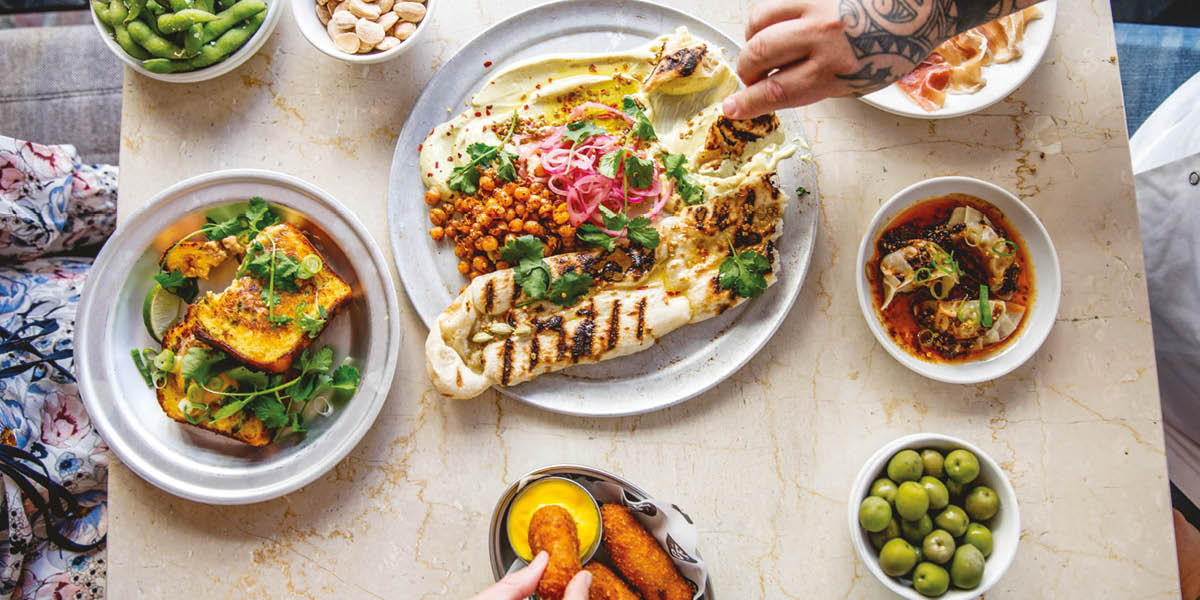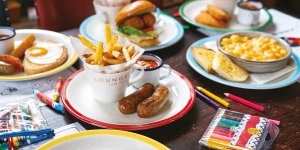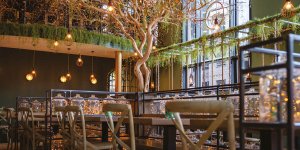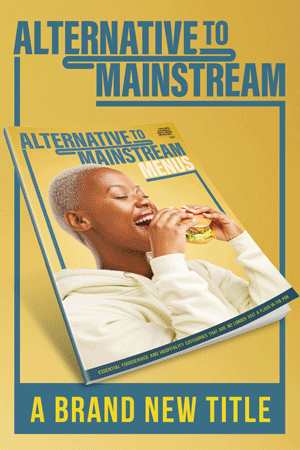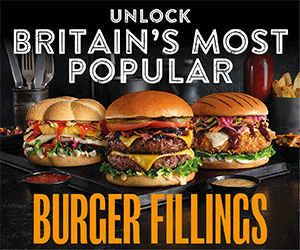Feature: Join the Caravan of love
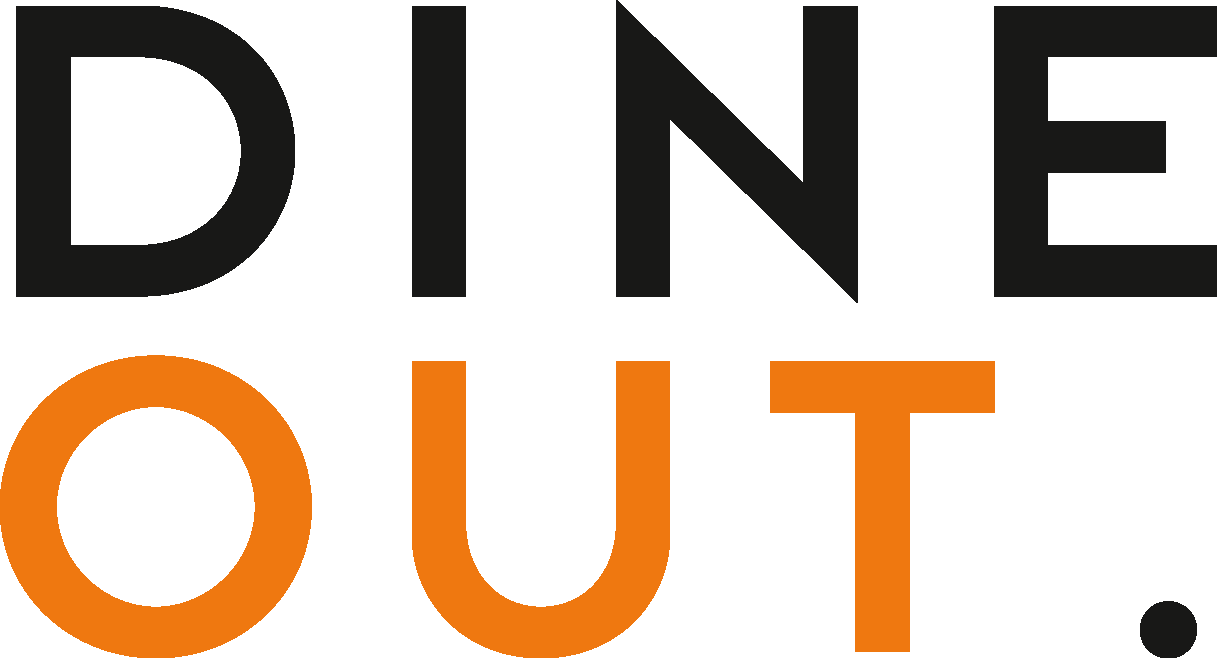
No brand merges coffee, global cuisine and Antipodean hospitality quite like Caravan, but how did three cheery Kiwis go from friends to founders of one of London’s most distinctive dining concepts? Dine Out editor Genna Ash-Brown chats with Laura Harper-Hinton to find out
London’s vibrant and varied restaurant scene reflects the city’s diverse population. Home to around 270 nationalities, you don’t have to go far in this heaving metropolis to experience irresistible international fare, from Cambodian fish amok curry to Polish pierogi, Hungarian beef stew and just about everything in between. It’s fair to say that a dish probably isn’t worth knowing if a version of it can’t be found somewhere in the Big Smoke.
In a brief stroll around one of the city’s foodie hotspots today, you’re likely to encounter at least one Antipodean dining concept. While demand for the culture and cuisine is prominent, it could easily have passed you by in the early 2000s. But with around 87,000 Aussies and 60,000 New Zealanders residing in the city, it was only a matter of time before their welcome influence came to the fore. Many a Londoner has come to frequent their Antipodean local, whether it’s for barbecue, brunch or a superfood bowl. But coffee is the category in which the region’s reputation is arguably unrivalled, and Caravan was among the first to fuel the
UK capital’s coffee revolution.
Kiwis in London
Hospitality professionals credit the city’s Antipodean ex-pats for driving what’s been dubbed the ‘third wave of coffee culture’. The first came with the exponential growth of coffee consumption, steered by the mass production of both instant and ground coffee, with the second being a tidal wave of the now ever-present high street coffee shops. This one, however, is far more sophisticated, inspiring consumers to appreciate the coffee roasting process itself, while encouraging restaurateurs to view serving the drink as a craft. While Antipodean-bred or inspired brands such as Sacred Coffee, Nude Coffee Roasters and Flat White came to London between 2005 and 2010, the Caravan crew were hot on their heels.
“Caravan has three founders,” says group CEO Laura Harper-Hinton. “There’s me, Chris Ammerman, who is managing director of the coffee side of the business, and Miles Kirby who is chef-director, so he takes care of all the fabulous food.”
The trio hail from Wellington, the capital of New Zealand. Their origin story, funnily enough, began in hospitality, as the threesome met while working at a restaurant in their hometown. “It was a really trendy restaurant called Mundo Cucina, but also a super busy bar as well when it first opened,” Harper-Hinton reminisces. “I was one of the door hosts, Miles was in the kitchen and Chris was behind the bar. We used to sit around after work and talk about opening our own place – drinking lots of tequila and having a lot of fun. That was many, many years ago.”
Then, in 2001, they found themselves in London. It wasn’t planned; they just happened to be there at the same time, finding themselves equally intrigued by both the city’s food and coffee culture. “What it didn’t have was the craft coffee scene that we had in New Zealand. There didn’t seem to be a flat white in sight at the time; it was a space very much dominated by Starbucks, Costa and Nero. There wasn’t really much of the Antipodean or New Zealand coffee thing going on. So we thought there was potentially a real opportunity here on that side.”
Caravan is different from the companies previously mentioned in that coffee, while integral to the operation, is just one arm of the business. This is also a legitimate dining brand, with an extensive menu offering small plates, grains and bowls, sourdough pizza, large plates, slices and serves. “Back then, we realised that there wasn’t really an all-day type of restaurant, other than maybe the French brasseries of the world, which at that point in time had become quite stale. There wasn’t really a fresh, interesting or global approach to all-day dining. After recognising that both those two things were a potential opportunity, we thought maybe we should combine the two.” And that, dear reader, is exactly what they did.
Building a business
It took a few years for the team to get the funds together, but by 2010 they were ready to roll. “The three of us put literally every penny we had into the first Caravan, which was in Exmouth Market. We put a coffee roaster in the basement – that’s where we started with the coffee business. Upstairs, out on the terrace, we had an all-day dining space.”
The brand quickly built credibility as a restaurant, but also started selling coffee to external companies. Kiwi chef Margot Henderson, who also happens to be Harper-Hinton’s cousin, became the group’s first wholesale customer, buying the goods for her London restaurant Rochelle Canteen. “She’s been buying our coffee since literally day one,” adds the founder.
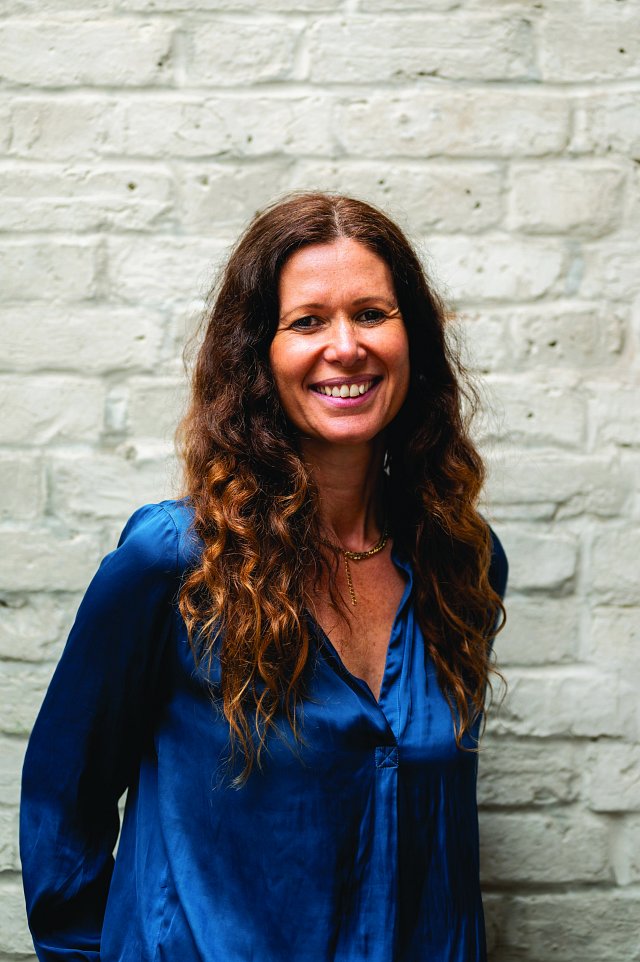
Laura Harper-Hinton (Image: ©Bank Kantaros)
Now, the brand has seven venues in some of the city’s busiest locations, including Bankside, Canary Wharf and King’s Cross, with the team also owning and operating Vardo, Caravan’s sister restaurant, in Chelsea.
The founders didn’t have any form of game plan or agenda when they launched their first outpost. Between them, there wasn’t really any financial or MBA background to speak of. Their approach was very much lifestyle focused from the off. “We’re doing this because we love it,” she states. “The whole concept was well-travelled from day one. We wanted to make sure that we were representing lots of emerging wines – so we had wines from Slovenia and lots of really interesting grapes that aren’t normally grown in a particular region.
“But we didn’t have a clue what we were doing,” she explains. “We didn’t have marketing, we didn’t have PR, we hadn’t told anyone we were opening and we didn’t even have signs on the door. We literally just opened and expected people to come. It was
extremely naïve.”
Clearly, the trio’s love for their craft prevailed. One glowing review early doors from a prominent food blogger got word out to the likes of Marina O’Loughlin and Fay Mashler. The FT’s Nick Lander was another of Caravan’s most distinguished early guests. From there, the business was off. “At the time, Nick was consulting for Argent – the company behind the King’s Cross development. He brought in Roger Madeline who was Argent’s CEO and they asked whether we’d consider taking a big space at King’s Cross,” adds Harper-Hinton. “It was really scary because it was triple the size of Exmouth Market. I know people who looked at it and turned it down. It felt like it was in the middle of nowhere. When I first moved to London, the area seemed like a wasteland. But we decided to do it and I’m so pleased that we did. That really has been the biggest transformation for our business, going from the small Exmouth Market site to King’s Cross. It’s still, to this day, such a wonderful business with an amazing community around it.”
Hospitality can be a tough and even cut-throat industry to navigate. But boy, oh boy, can a well-timed leap of faith pay off 100 times over. Caravan’s subsequent success is a testament to that.
“Now, as well as three brewbars, we’ve also got the coffee roastery, which is a 10,000 square foot Victorian warehouse,” Harper-Hinton explains. The team already host a number of classes in this space, regularly adding new educational experiences to the programme. On top of taking a guided tour of the North London roastery, where members of the public learn how and where the coffee is grown, how it’s roasted and get the lowdown on Caravan’s nifty brewing tips and tricks, budding baristas can also learn how to brew the perfect filter coffee at home; master ‘dialing in’ (the process of adjusting the setting on a coffee grinder), steaming and pouring milk and experience making coffee with professional grade coffee machines; take part in milk and latte art classes and more.
“We also use the coffee school as a training space for our clients,” she says. “We want to get everyone super engaged in the coffee journey – how to make it and how to troubleshoot, use the grinder and clean the machines properly, all really important things. But it’s ultimately a public-facing coffee school. Classes have been going well and we want to add more. We’re probably going to do a ‘brew your own’-type one soon, where you can come up and help with the roasting process, combine your own beans together and have a couple of espresso martinis.” As I told Harper-Hinton during our discussion, she had me at espresso martini…
The no-boundaries mindset
The company might be a pioneer of London’s coffee culture, but the harmony between the brand’s food and beverage offering is what truly sets it apart. Kirby’s ability to pull diverse flavours together in the kitchen, creating an explorative yet uncomplicated menu, consistently hits the mark with ever-discerning guests. “I’m not a huge fan of fusion for fusion’s sake,” notes Harper-Hinton. “But if there are flavours like miso that might go well with something that’s more of a Middle Eastern-inspired ingredient, like cumin or something, then why not try putting them together? The philosophy should never be doing something for the sake of it – do it because it’s delicious.”
The varied dish selection is an intentional move to ensure there’s something available to satisfy every type of diner. “We would never go live with a menu that doesn’t cater to people who need X, Y or Z,” she says. “I looked back at some of our original menus and it’s something we’ve always done. I think it was even a little subliminal. We’ve always wanted everyone to feel welcome. Has every menu we’ve produced ticked all the boxes? Definitely not, but as soon as we realised there was only one vegan brunch dish on, it was straight back to the drawing board.”
But inclusivity is not the only foodie element the Caravan group seems to have nailed – a quick glance at previous seasonal offerings shows that the team is, and has long been, on top of global food trends. “It’s a big focus for us,” says the founder. “In fact, we’ve got a food tasting next week which I’m super excited about. As a team, we’re always on the lookout for cool, exciting stuff that’s happening not just in London, but around the world. We’ve done a lot of travelling between us, bringing ideas back from everywhere we go. A good example lies in our grains and bowls section. I did a trip to Los Angeles and the whole US West Coast probably about six or seven years ago now. I brought it back because I could see this healthy trend emerging, with people wanting to come in – especially at lunchtime – and have something that makes them feel good and light when they walk away, rather than tired and heavy.”
That may have been over six years ago, but this sort of ahead-of-the-curve thinking clearly remains a key driver for the brand, helping them scoop the coveted Menu Innovation accolade at this year’s Casual
Dining Awards.
“I recently looked back at the briefing documents we gave our graphic designers to come up with the logo years ago, when we had first started,” reminisces Harper-Hinton. “A lot of the stuff we were saying then, 13 years ago, is what we’re saying now. Our values are very much what they’ve always been: well-travelled, because we’re always wanting to combine lots of global flavours in interesting ways without it being too much of a mashup. But it’s also flipping that around to travelling well. We’re not necessarily saying that everyone has to jump on a plane to be creative or to come up with ideas and feel inspired. It’s in the mind as much as it’s in tangible things that you might pick up in your daily life. It’s all about a no-boundaries mindset – which is what we all get growing up in New Zealand.”


